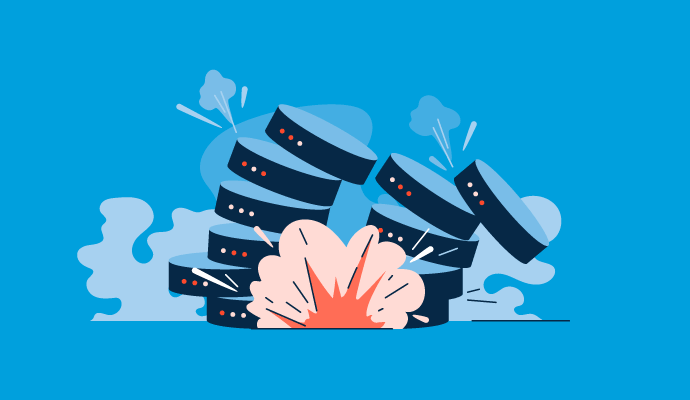How Robust Data Destruction Boosts Your Overall Cyber Security Measures
Wiki Article
The Relevance of Effective Information Destruction Practices in Safeguarding Sensitive Information and Ensuring Computer Safety
In a period where information breaches are increasingly typical, the value of reliable information devastation techniques can not be overemphasized. Organizations face significant risks when sensitive info is inadequately taken care of, potentially resulting in unauthorized gain access to and severe monetary consequences. Executing robust data destruction methods not only mitigates these risks but also aligns with lawful conformity needs, making sure that companies maintain their track record and foster client trust fund. However, the inquiry stays: what details approaches can be utilized to boost these techniques, and just how can companies successfully integrate them into their total cybersecurity structure?Comprehending Data Devastation
Understanding data damage is vital in today's digital landscape, where sensitive info can easily be compromised. Reliable information damage involves not simply deleting data yet making certain that data is irretrievable through extensive techniques. This process is crucial for organizations that handle personal customer info, intellectual residential property, or inner files, as any type of violation can cause serious financial and reputational effects.
Information destruction incorporates various methods, consisting of shredding physical media, degaussing magnetic storage space gadgets, and utilizing software-based options that overwrite data multiple times. Each method serves a certain purpose and has to line up with the level of sensitivity of the information being disposed of. For example, physical destruction is commonly preferred for hard disk drives having extremely confidential information, while software application approaches could be adequate for less sensitive information.
In addition, adhering to sector criteria and guidelines, such as the General Data Protection Regulation (GDPR) or the Health And Wellness Insurance Policy Mobility and Accountability Act (HIPAA), is important for compliance and to reduce lawful dangers. Organizations has to create a robust information destruction policy, train staff members on best practices, and routinely investigate their treatments to ensure that all sensitive info is taken care of safely and properly.
Risks of Inadequate Practices
Inadequate data destruction practices subject companies to considerable threats that can have significant consequences. When delicate information is not effectively gotten rid of, it stays at risk to unauthorized access, which can cause data violations and identity theft. Such occurrences not only jeopardize the security of people yet likewise stain the organization's track record, leading to a loss of consumer count on and possible financial consequences.In addition, regulatory conformity is significantly strict in lots of industries. Failure to follow information destruction policies can lead to substantial fines and legal activities versus organizations. These charges can stress funds and divert interest from core service procedures.
Furthermore, the misuse of residual data can cause intellectual residential property burglary or company espionage, jeopardizing competitive advantages (data destruction). The effect of insufficient information damage expands past prompt economic losses; it can additionally cause long-term damage to brand name honesty and market position

Organizations must recognize that data safety and security is not entirely regarding stopping violations; it likewise incorporates the accountable administration of data throughout its lifecycle. Overlooking effective data devastation methods can have tragic effects, highlighting the requirement for robust steps to reduce these risks.
Best Practices for Information Devastation
Carrying out efficient data devastation methods is necessary for guarding sensitive information and keeping conformity with regulative standards. Organizations should take on a multi-faceted technique to guarantee that data is irretrievable, therefore protecting against unauthorized access and possible breaches.First, data need to be categorized based on level of sensitivity, enabling companies to apply ideal damage methods customized to the level of threat. For electronic information, using software-based data-wiping devices that adhere to industry criteria can efficiently overwrite existing information. Physical damage approaches, such as shredding or degaussing, are important for devices that save sensitive details, guaranteeing full removal.
Developing a clear data retention plan is vital, outlining how long various sorts of info need to be kept before destruction. Normal audits of data storage systems are likewise necessary to determine obsolete or unnecessary information needing removal.
In addition, training workers on the importance of information damage and the details methods to follow fosters a society of safety within the company. Finally, maintaining documentation of information devastation refines offers responsibility and sustains conformity with outside guidelines and inner plans. By sticking to these ideal techniques, companies can significantly mitigate the risks related to data exposure.
Legal and Compliance Considerations

Failing to abide by these laws can result in serious fines, including substantial fines and reputational damages. Organizations must execute a durable information devastation policy that lines up with these lawful structures and gives clear guidelines on the proper techniques of information disposal, whether physical shredding or electronic cleaning.
Moreover, maintaining paperwork of learn this here now information damage tasks is essential for demonstrating compliance during audits or evaluations. By focusing on lawful and conformity factors to consider, companies can boost their information protection posture and foster trust with clients and stakeholders, ultimately adding to a more protected data management environment.
Benefits of Effective Data Destruction
Effective information devastation techniques find here expand past plain conformity; they provide substantial benefits to companies that prioritize them. By making certain that delicate info is irretrievably ruined, organizations reduce the danger of data breaches and the potential financial repercussions related to them. This positive strategy not just safeguards versus unauthorized accessibility but additionally boosts the overall trustworthiness of the company in the eyes of clients and stakeholders.Carrying out robust data devastation techniques, such as physical damage of storage space gadgets or advanced information cleaning techniques, adds to the fortifying of an organization's cybersecurity posture. data destruction. It minimizes the probability of copyright burglary and secures proprietary details, thus maintaining an one-upmanship on the market
Conclusion
In conclusion, reliable information destruction practices are important for safeguarding delicate info and improving general computer security. Inevitably, a dedication to robust information damage strategies cultivates a culture of responsibility, therefore enhancing an organization's cybersecurity posture and maintaining customer count on.
Report this wiki page